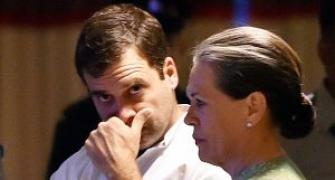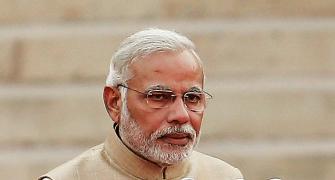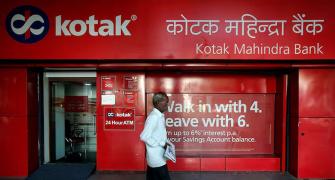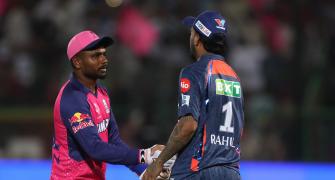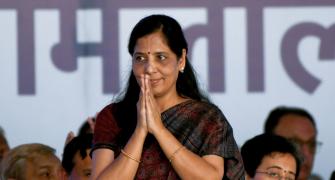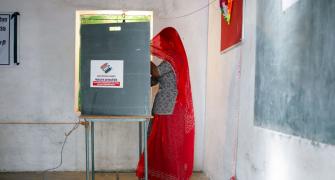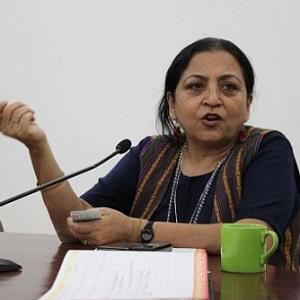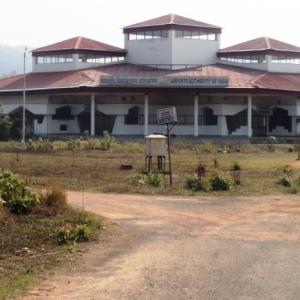While dynastic politics may have receded in the Lok Sabha, it is alive and kicking in states. Mayank Mishra reports One in five members of this Lok Sabha belongs to a political dynasty, down from one in three dynasts in the previous House, according to data collected by Kanchan Chandra, a political scientist at New York University.
One in five members of this Lok Sabha belongs to a political dynasty, down from one in three dynasts in the previous House, according to data collected by Kanchan Chandra, a political scientist at New York University.
"Dynastic representation has declined following the ascension of the Bharatiya Janata Party (BJP) to power. In 2009, 29 per cent of Members of Parliament (MPs) had a dynastic background. That (proportion) has dropped to 21 per cent in 2014," Chandra wrote in an article in the July 12 issue of the Economic and Political Weekly.
The new Cabinet reflects this change as well. Manmohan Singh's cabinet had 36 per cent of ministers belonging to political dynasties. Narendra Modi's Cabinet has 24 per cent of ministers whose family members have been in politics.
The BJP, which swept the recently concluded Lok Sabha elections, is a cadre-based party and is less likely to field dynasts, argue political scientists. In 2009, the BJP had 20 per cent of the Lok Sabha MPs. The party more than doubled its tally in 2014 but only 15 per cent of BJP MPs in 2014 were dynasts, Chandra wrote.
Does this drop in percentage signal a trend? Social scientists caution that one election result is not enough to suggest that this well entrenched practice is on the way out. "It is good that the percentage has come down. But a definitive conclusion will be premature at this stage. We will have to look at other data to see the status of elite consolidation in the country," said social scientist Shiv Vishwanathan.
Sanjay Kumar, director of the Centre for the Study of Developing Societies said, "I do not give too much importance to the number of members from political dynasties going up or coming down. Dynasts have the advantage for the first time. After that, it is all about delivery and performance," .
Incidentally, India is not the only country that has more than fair share of aristocracy lording over democratic institutions.
Chandra wrote, "India is not the most extreme case of dynasticism in a modern democracy. That distinction belongs to Philippines, in which half of all Congresspersons in 2007 followed a relative into elected office. But dynasticism in India, even in 2014, exists at significantly higher levels than in several other established democracies, putting it in the company of countries such as Japan, Iceland and Ireland, in which between a third and a fourth of elected legislators in 2009 were dynastic. This distinguishes it from countries such as the UK, Belgium, Israel, the US, Norway, and Canada, in which the proportion of dynastic legislators ranged between one per cent and 11 per cent".
While dynastic politics may have receded in the Lok Sabha, it is alive and kicking in states. Research shows 28 per cent of all chief ministers belong to political families. Among 36 political parties that have at least one member in Parliament, as many as 23 are led by politicians who were either preceded or are followed by family members in politics.
"Except for the unusually well qualified, most 20- or 30-year-olds from political families are likely to obtain greater returns, in status, power, and earning capacity, from entry-level positions in elected politics than, say, entry-level positions in business, banking, or the bureaucracy or other such professions," Chandra wrote.
States that control goods and services and distribute them yield the political class enormous power, making a political career lucrative, the author argues. And incumbents like to keep their hold by promoting their families. And economic reforms launched in 1991 do not seem to have changed the pattern.
The significant drop in dynasts in the Lok Sabha, however, does signal a trend. "Politics has become very competitive and that is something that suggests the process of democratisation is getting strengthened," Kumar observes.



